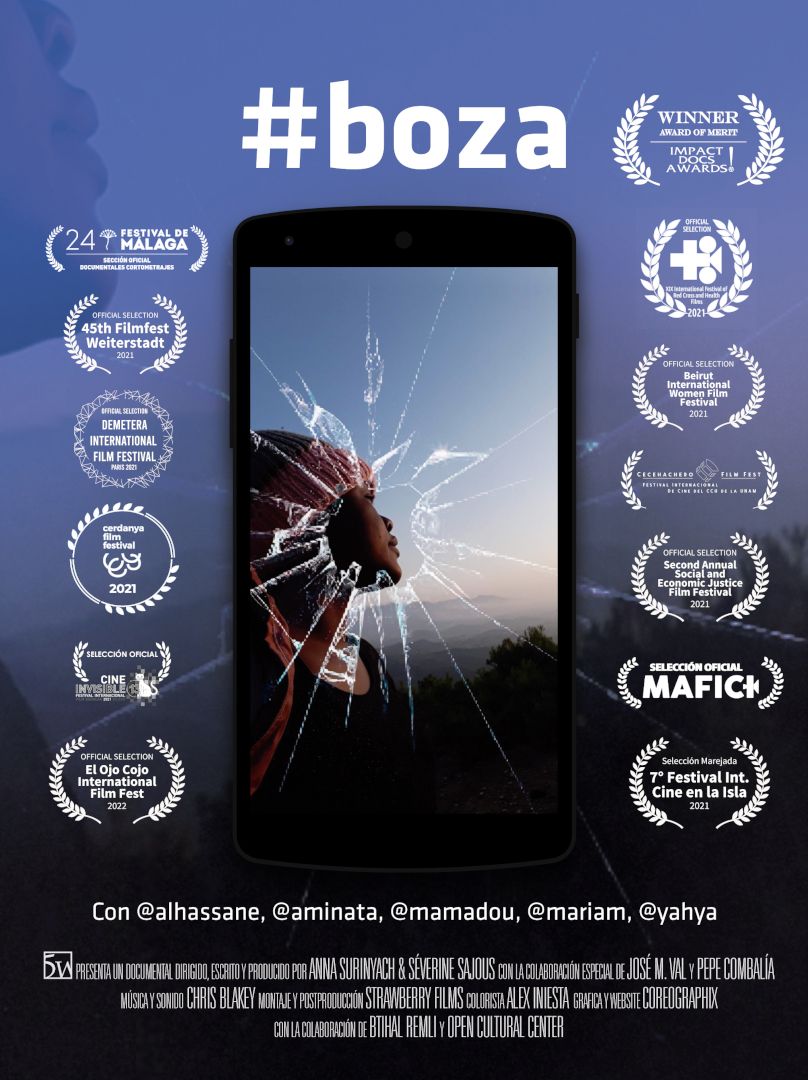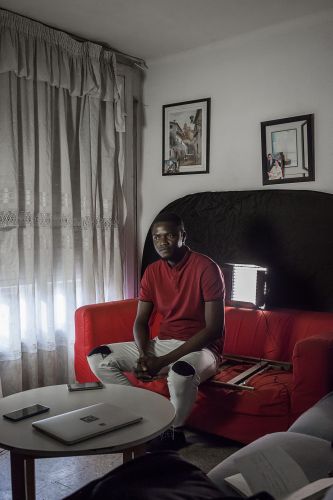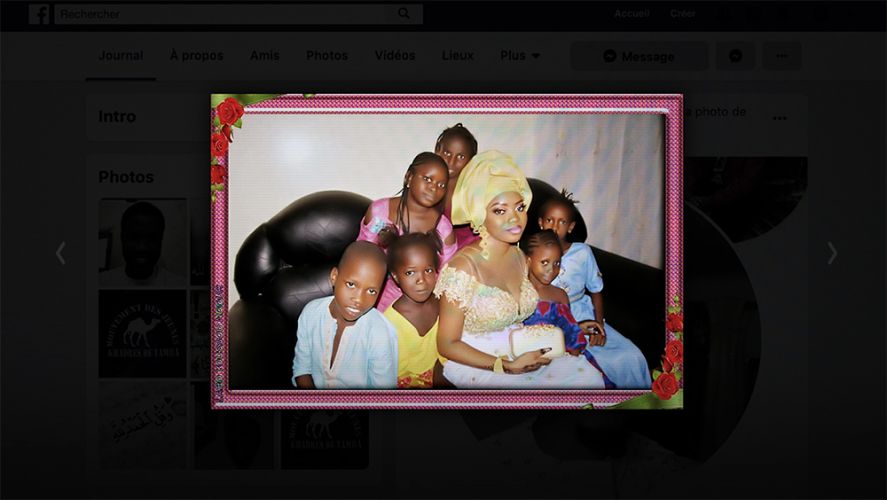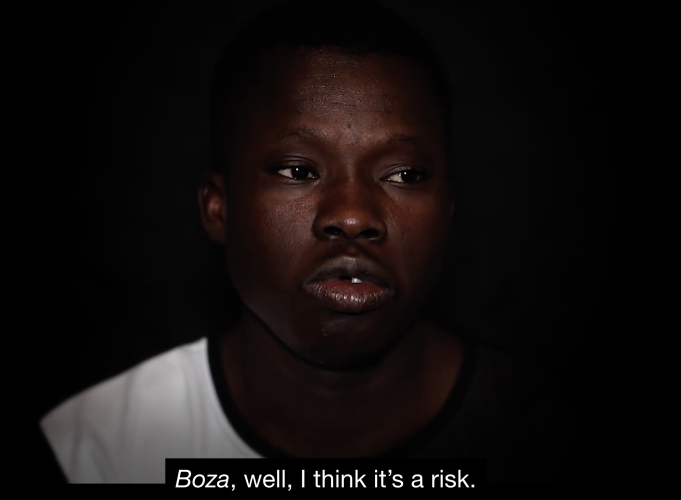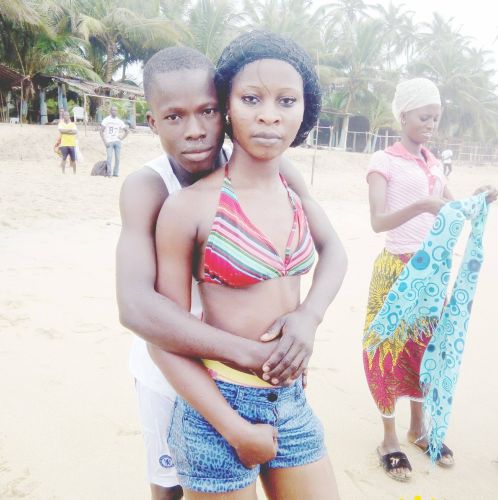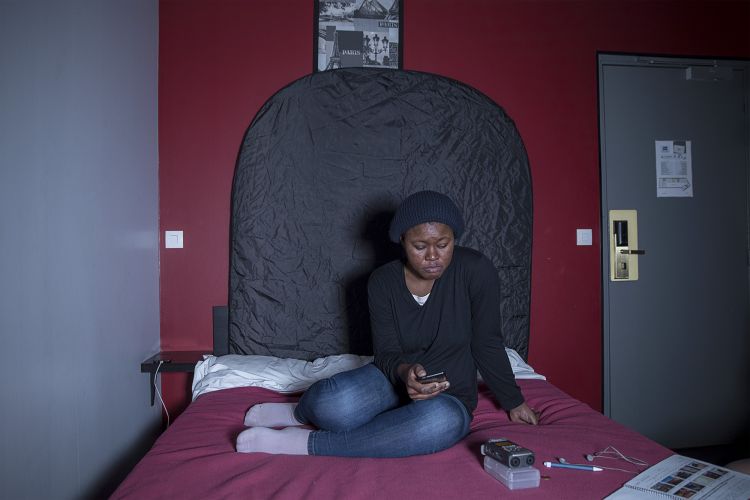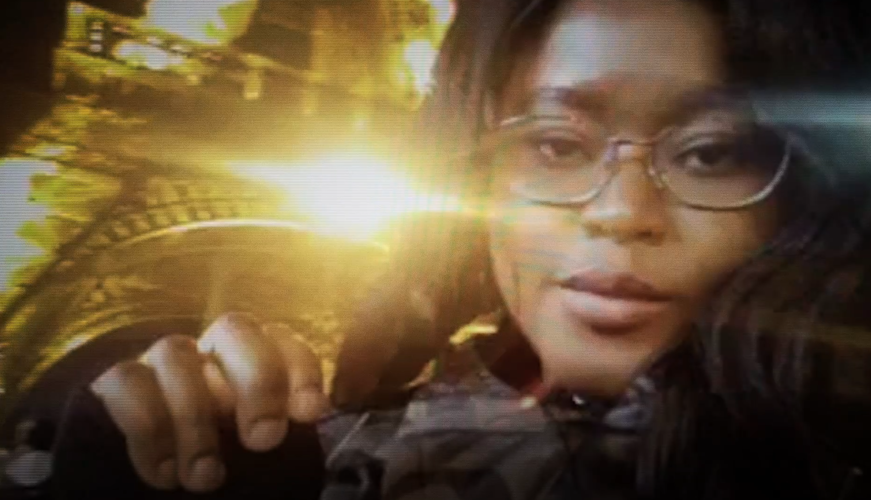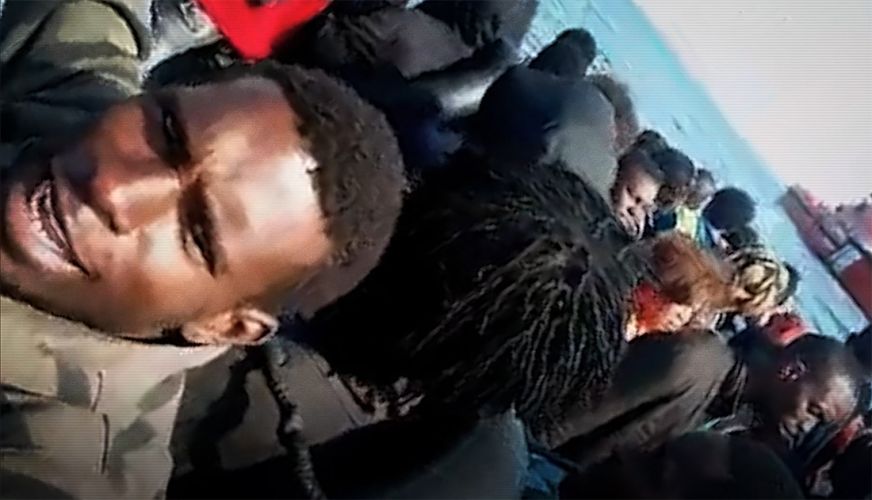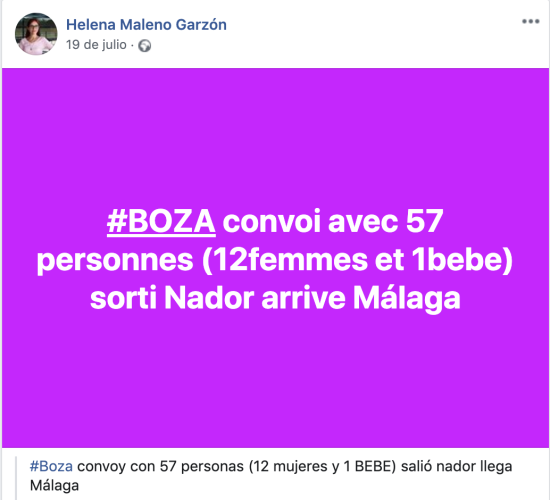#boza
Spain | 2020 | Documentary Film | 17 min. | French, Spanish | English subtitles
#boza
Synopsis
#boza, a film about people on the move from the African continent to Europe. In first person narrative and using videos and Selfies, Alhassane, Aminata, Mamadou, Mariam and Yahya tell their journeys and their goal of making “boza”. A word of disputed origin and exact meaning, “boza” is used by those trying to cross this particular border to describe the goal, and the act of successful crossing. The film #boza removes all filters, becoming a collective Selfie on migration.
Credits
Concept by, Director, Producer: Séverine Sajous, Anna Surinyach
Editor / postproduction: Jose M. Val
Script: Séverine Sajous, Anna Surinyach
Script coordinator: Pepe Combalía
Sound: Chris Blakey
Color Grading: Alex Iniesta
Distribution: Yaq & Séverine Sajous
Production Company: 5W
Graphic: Coreographix
Collaboration with: Open Cultural Center, Strawberry Films, Btihal Remli
With the images of
Aminata Camara
Mamadou Bamba
Yahya Makhtar
Mariam Sarr
Alhassane Traore
Mohammed Bangura
Fatou Meite
Massadje Diomande
Aissatou Barry
Honoré Mbogos
Samuel Nacar
Film Premieres
International Premiere
2020. Demetera international film festiva, International Competition Short Film, France
National Premiere
2020. Festival de Malaga, Competition Short Film , Spain
Local Premiere
2018. Cecehachero International Film Festival, Official Section, Spain
Awards
2022. Awarded Honorable mention at Cefalù Film Festival, Italy
2021. Awarded of merit at The Impact DOCS Awards, USA
Official Selections
2022. Festival du film social de Nice, France
2022. XII Encuentro Hispanoamericano de Cine y Video Documental Independiente Contra el Silencio Todas las Voces, Mexico
2022. FICNOVA 2022, Held in different cities international
2022. Cefalù Film Festival, Italia
2022. Europa Film Festival, Spain
2021. The Paus Premieres Festival, UK
2021. Demetera international film festival, France
2021. Cecehachero International Film Festival, Spain
2021. Beirut International Film Festival, Lebanon
2021. Festival de Málaga, Spain
2021. San Giò Verona Video Festival, Italia
2021. Festival Internacional Cine en la Isla FECISLA, Colombia
2021. Certamen Open Air Filmfest Weiterstadt, Germany
2021. Festival Internacional de Cinema de Cerdanya, Spain
2021. The 21st Seoul International Alt Cinema & Media Festival, South Korea
2021. Social and Economic Justice Film Festival, USA
2021. International Festival of Red Cross and Health Films, Bulgaria
2021. Puerto Madryn International Film Festival- MAFICI, Argentina
2021. Festival Internacional de Cine Invisible Film Sozialak, Spain
2021. El Ojo Cojo International Film Festival, Spain
2021. Primed, International Festival of Mediterranean Documentary film and reportage, France
2021. HER International Film Festival, Ireland
2021. Enserio International Film Festival, Spain
2021. Impact DOCS Awards, USA
Reviews
New York Times: Todavía tiene sentido el fotoperiodismo?
Guiti News: #Boza : un film pour dire nos petites victoires
Fisheye Mag: #Boza, un selfie poignant de la traversée des migrants
Malaga Hoy: Un viaje por las redes hasta #Boza
Logbook Aminata
Developed while making our short film, #boza logbook represent the process of meeting people and hearing about their journeys, logging all the information we collected onto phones, that allowed us to assess the viability of the project, reflect on and investigate further the use of cellphones and social networks by people on the move.
This collection of material in the form of a notebook on mobile phones led to the creation of the script for the film. Over a period of 6 months we worked continuously with one group of people, following their journeys and arrivals to the European cities of Almería, Malaga, Barcelona, Girona and Paris.
Based on what we collected in the logbooks we made with the protagonists, we were then able to gather enough information on social media that lead us to Nador and Tangier in Morocco, tracking some of the people who had disappeared while crossing the southern border.
The use of the Logbook allowed the film’s protagonists to speak from their own field of experience and gave them the space to be the narrators of their own stories. Their testimony opens the door to some much needed (self) reflection on the media’s representation of migration.
